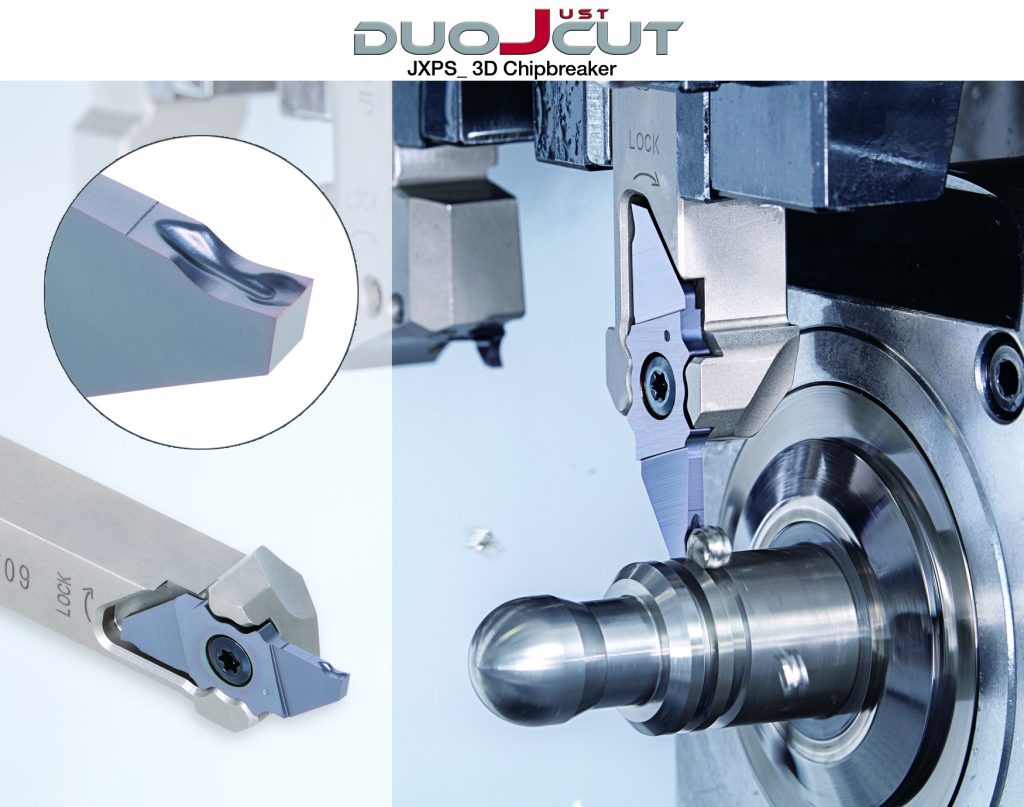DuoJust-Cut’s JXPS Insert
DuoJust-Cut’s JXPS Insert
DuoJust-Cut features innovative insert clamping ensuring tool rigidity and stability in various parting operations. In addition to existing JXPG insert with a ground in chipbreaker on the rake face, the new JXPS insert incorporates a 3D chipbreaker pressed in to its "dual-rake" cutting edge which is designed to promote optimal chip control and evacuation without compromising surface integrity. n

Tungaloy is expanding DuoJust-Cut line of indexable parting tools to include JXPS inserts that features a pressed-in 3D chipbreaker for reliable chip control in during parting operations on Swiss-type lathes.
DuoJust-Cut features innovative insert clamping ensuring tool rigidity and stability in various parting operations. In addition to existing JXPG insert with a ground in chipbreaker on the rake face, the new JXPS insert incorporates a 3D chipbreaker pressed in to its "dual-rake" cutting edge which is designed to promote optimal chip control and evacuation without compromising surface integrity.
Four different types of DuoJust-Cut inserts fit in the same pocket of the tool holder, allowing an optimal insert cutting depth to be selected for a given application. An optional parting holder is also available when machining close to the sub-spindle is required.
- At a Glance
- JXPS insert with a pressed-in 3D chipbreaker
- Innovative insert clamping to ensure machining reliability
- Optimal insert cutting depths can be selected for given operations ensuring process security
- Holder option is available for machining close to the sub-spindle
- Total of 8 inserts to be introduced





